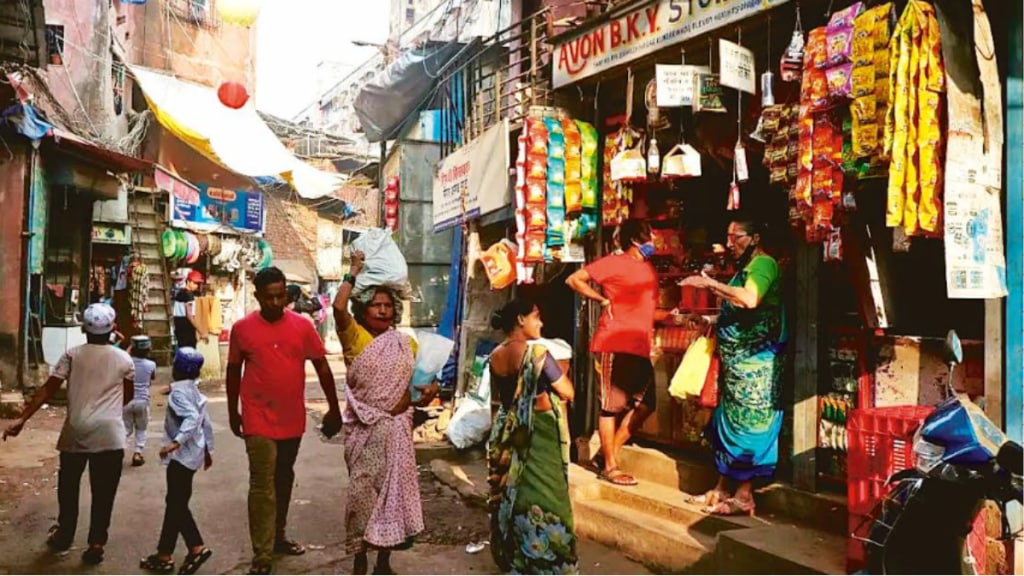In the past decade, floor cleaner penetration in rural India has surged from just 1% to 17%, while toilet cleaners have jumped from 7% to over 40%, according to Kantar.
Kantar data also shows that as rural consumers adopted new categories like toilet cleaners, floor cleaners, bottles soft drinks, etc, their average consumption of mass categories such as salt, hair oils, detergents declined.
Rural India is now outpacing its urban counterparts in consumption growth across several FMCG categories, including personal hygiene, home cleaning, packaged snacks, bottled soft drinks, insecticides, skin creams, and hair colourants.
The narrative in this `5-lakh-crore FMCG sector is beginning to shift. Far from being limited by necessity, rural shoppers are increasingly making aspirational purchases. They’re experimenting with new formats, displaying loyalty to brands, and even trading up to premium products.
Behind this shift lies a confluence of forces, from improved access to evolving aspirations. “More brands are reaching deeper into Bharat,” says Manoj Menon, director, commercial, South Asia, Kantar Worldpanel, noting that smaller towns and villages are now firmly on the radar of both legacy and challenger brands. With improved logistics, distribution networks, and retail access, rural consumers today have visibility and availability of choices that weren’t there five years ago.
But the change goes beyond access; it’s also about mindset. Menon points to the personal and home hygiene categories to illustrate the shift. While affordability remains important, rural shoppers are finding ways to balance budget and aspiration. Small and affordable pack sizes, therefore, remain a critical enabler. Categories like fabric conditioners, skin creams, and hair conditioners are seeing faster growth in smaller packs in rural areas, mirroring urban experimentation and consumption.
“Rural consumers are now spending more willingly,” he says. “They are paying `4 more per kg for personal hygeine than they were a year ago.”
Interestingly, while aspirations are rising across the board, the urban and rural FMCG markets are diverging in brand preference. In urban India, it’s the smaller, local brands that are gaining traction, clocking 8.4% growth in FY25, according to Kantar data. But in rural areas, it’s the larger, listed FMCG players that are gaining ground, growing 5.1% compared to just 2.3% for small brands. In contrast, big brands grew only 2.1% in urban markets during the same period. The message is clear: as rural consumers get more brand-conscious, trust in well-known names is helping large players deepen their rural presence.
Action, reaction
Companies are responding to this change, revisiting targeting and communication.
“Our experience with premium products and brand upgrades in rural markets has been encouraging and insightful,” says Ragini Hariharan, marketing director – beauty and personal wellness, Himalaya Wellness Company. “Consumers today are increasingly willing to explore newer and more premium products within categories such as face washes, serums, lip care, and oral care. This shift is supported by rising awareness, improved access to information through digital platforms, and aspirational consumption patterns shaped by urban influence.”
She adds that Himalaya is seeing this reflected in product uptake, with newer formats and premium SKUs gaining traction, especially among younger rural consumers.
In the long term, Kantar expects rural growth to not only catch up with urban markets but even marginally surpass them. “We expect all the seven categories that we have talked about earlier to continue leading rural growth for the next few years,” says Menon.
For Mysore Deep Perfumery House and Zed Black, rural India has become more than just a volume driver. The company says even its higher-end offerings like bamboo-less incense sticks and wellness-based aroma products are finding takers in rural pockets. “Today’s rural shopper is brand-aware, digitally connected, and open to premium formats,” adds Ankit Agrawal, director. The company has introduced resealable zipper pouches and monthly packs for convenience.


